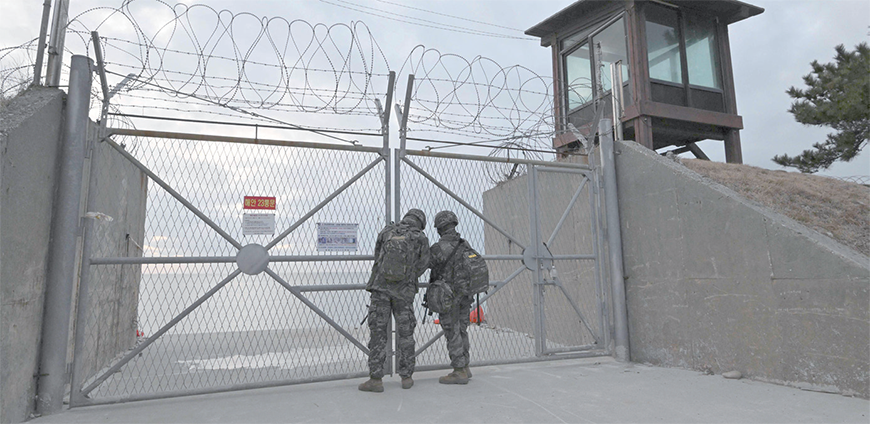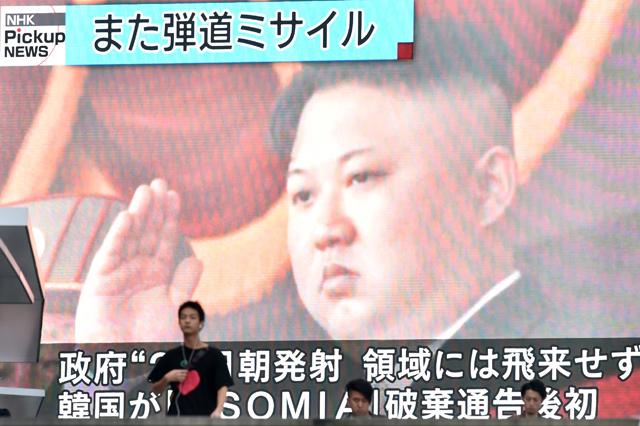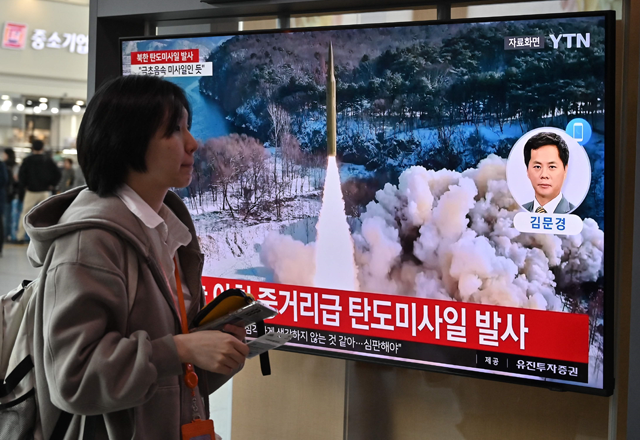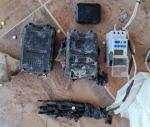You are here
Eerily quiet on South Korea’s frontline border island
By AFP - Jan 09,2024 - Last updated at Jan 09,2024

Snow blankets part of the disaster-hit Wajima market area in the city of Wajima, Ishikawa prefecture on Monday (AFP photo)
YEONPYEONG, South Korea — On South Korea’s remote border island of Yeonpyeong, heavily armed soldiers locked up the beaches at dusk on Monday — a reminder of the picturesque spot’s proximity to the nuclear-armed North.
Pyongyang has conducted live-fire artillery drills for three days near Yeonpyeong and another border island, Seoul’s military said, prompting counter-drills, heightened security, and evacuation orders for residents.
The island is just three kilometres from North Korean territory, and on Monday visibility was clear enough to see multiple North Korean islands just across the contested maritime border.
AFP watched two soldiers carrying automatic weapons close giant metal gates topped with razor wire, as the sun set over Yeonpyeong’s western beach.
“The gates are usually closed for security reasons but it was open today for a coastline exploration mission,” a South Korean Marine official told AFP, speaking on condition of anonymity.
Contingents of South Korean soldiers are permanently based on the island, which has long been on the frontline of the Cold War-era conflict that ended in 1953 with an armistice that was never replaced by a peace treaty, so both sides remain technically at war.
Residents still remember a 2010 attack, when North Korea shelled the island directly, killing four people, including two marines.
“Because of the painful memory from the 2010 shelling, residents here became panicked when told to escape to shelters,” Lee Yeon-hwan, who runs a restaurant on Yeonpyeong, told AFP.
He said Friday’s evacuation order — ahead of South Korean military counter drills — was the first issued in six or seven years, and that it had triggered a lot of trauma for older residents.
“Talking about [the 2010 attack] brings sad, painful memory so people here don’t like to talk about it,” the 60-year-old added.
Lee’s restaurant, one of the oldest on the island, relies on the soldiers stationed on the island for its income. And when tensions are high, it’s bad for business.
“When they’re on high alert, they can’t go out to dine here,” he said ruefully.
“And their families are not able to visit them, which is also a downside because they often dine out,” when they have family in town.
‘Home of freedom’
Relations between the two Koreas are at one of their lowest points in decades after North Korean leader Kim Jong-un last year enshrined his country’s status as a nuclear power into the constitution and test-fired several advanced ICBMs.
At Pyongyang’s year-end policy meetings, Kim threatened a nuclear attack on South Korea and called for a build-up of his country’s military arsenal ahead of armed conflict that he warned could “break out any time”.
Yeonpyeong felt eerily quiet when AFP visited on Monday, with just soldiers and a handful of visiting Korean media out and about.
Despite the island’s proximity to the North, defections across the maritime border are exceptionally rare — only a couple of cases of North Koreans swimming to the South have ever been reported.
At the beach, however, a sign is posted on a concrete wall to greet any arrivals.
“Welcome to South Korea, home of freedom. Please press the telephone button we will safely escort you,” it says.
AFP saw a telephone line, but no telephone on the beach, and was unable to locate a button.
Related Articles
SEOUL — South Korea on Saturday arrested a former national security chief on suspicion of covering up events surrounding the 2020 murder of
SEOUL — North Korea on Saturday fired what appeared to be two short-range ballistic missiles into the sea after vowing to remain t
SEOUL — North Korea fired a medium-range ballistic missile on Tuesday, Seoul’s military said, the latest in a spate of banned weap


















